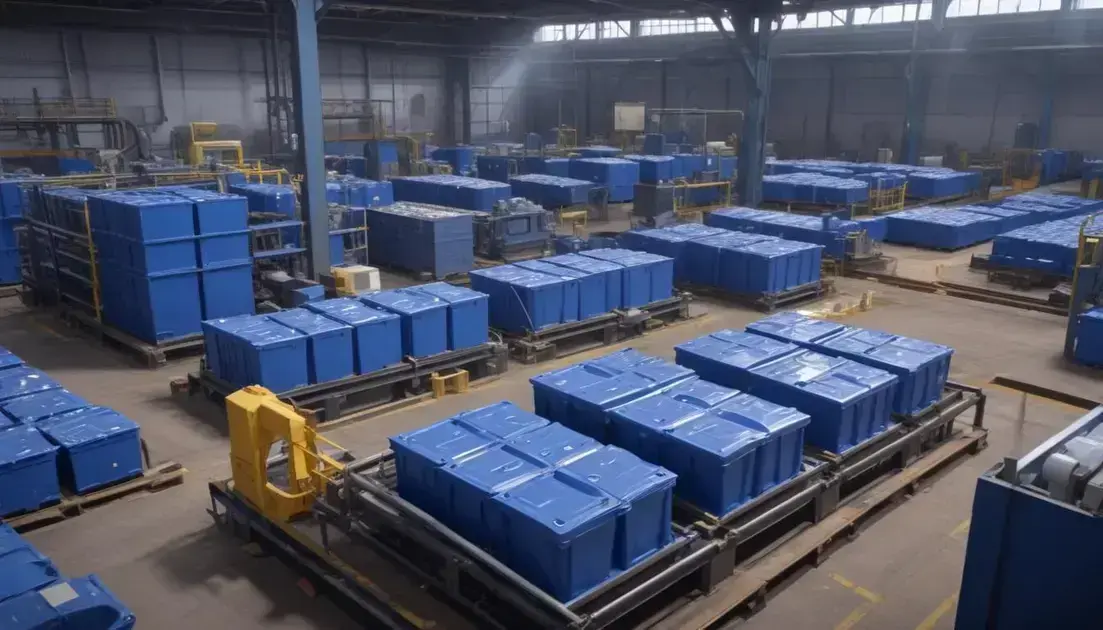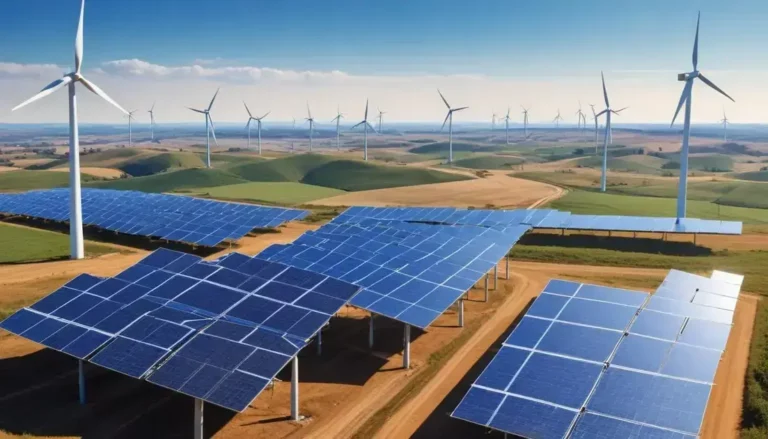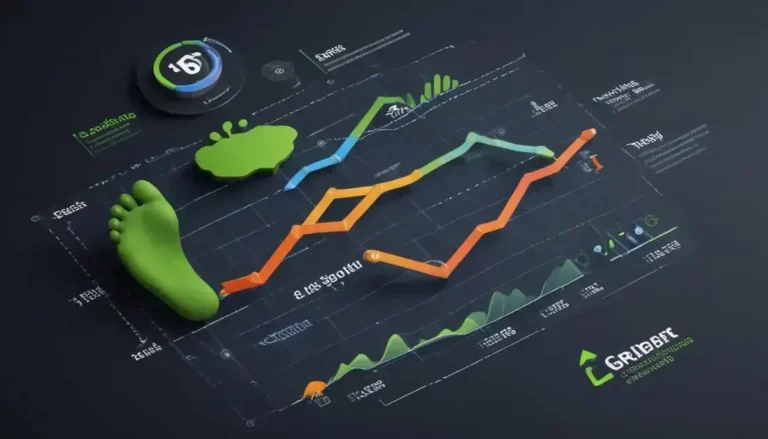How Cobalt Recycling Enhances Samsung’s Sustainability
Cobalt recycling is essential for enhancing the sustainability of battery production, significantly reducing environmental impact by recovering valuable materials and minimizing reliance on new mining operations.
Cobalt Recycling is becoming a game-changer for Samsung’s battery production. Curious about how this process contributes to sustainability? Let’s dive in!
Samsung’s Circular Battery Supply Chain
Samsung is pioneering an innovative approach to battery production through its circular supply chain. This model emphasizes the reuse and recycling of materials, significantly reducing waste and resource consumption. By incorporating recycled cobalt, Samsung enhances its sustainability efforts while maintaining the high performance of its batteries.
The process begins with the efficient collection of used batteries, which are then processed to recover valuable materials. This not only diminishes the reliance on newly mined resources but also lowers the environmental impact associated with mining activities. Samsung’s commitment to a closed-loop system demonstrates its dedication to fostering a sustainable future.
Furthermore, improving the efficiency of material recovery is critical in this supply chain. Advanced technologies are employed to ensure that maximum quantities of cobalt and other materials are extracted and reused. This strategic initiative positions Samsung as a leader in the global movement towards sustainable battery manufacturing, aligning with environmental targets and consumer expectations.
Environmental Impact of Cobalt Mining
The environmental impact of cobalt mining is significant and multifaceted. Mining operations often lead to the destruction of local ecosystems and biodiversity. The process involves removing large amounts of earth, leading to soil erosion and habitat loss for various species.
Moreover, cobalt mining can result in water contamination. Harmful chemicals used in the extraction process can leach into nearby rivers and groundwater, posing risks to local communities and wildlife. This pollution can disrupt drinking water sources and agricultural activities, creating long-term challenges for those living near mining sites.
Another critical concern is the carbon footprint associated with cobalt extraction. The energy-intensive nature of mining, often reliant on fossil fuels, contributes heavily to greenhouse gas emissions. These emissions exacerbate climate change, impacting global ecosystems and weather patterns.
Awareness of these issues has led to increased scrutiny of cobalt sourcing practices. Companies are urged to adopt more sustainable mining practices and invest in recycling initiatives. By embracing responsible sourcing and fostering recovery methods, the technology industry can mitigate the adverse effects of cobalt mining on the environment.
Technological Innovations in Recycling
Technological innovations in recycling have revolutionized how materials are processed and reused, particularly in the context of battery production. Advances in recycling technologies enable the efficient recovery of cobalt and other valuable materials from old batteries, reducing the need for new mining operations.
For instance, hydrometallurgical methods are gaining traction as a means to extract metals from spent batteries. These processes utilize aqueous solutions to separate metals, minimizing environmental impact and enhancing recovery rates. Such innovations not only support sustainability but also make economic sense by decreasing reliance on scarce resources.
Additionally, developments in robotic automation are streamlining the recycling process. Robots equipped with advanced sensors can identify and sort battery components quickly and accurately, ensuring a higher level of purity in recycled materials. This efficiency not only cuts costs but also boosts the overall productivity of recycling facilities.
Furthermore, research into circular economy models emphasizes designing batteries from the ground up with recyclability in mind. These initiatives encourage manufacturers to collaborate with recycling companies, creating a cohesive system that supports sustainability throughout the product lifecycle. By integrating these cutting-edge technologies, the industry can significantly reduce its environmental footprint.
Future of Sustainable Battery Production
The future of sustainable battery production hinges on innovative strategies and advancements in technology. As the demand for renewable energy solutions grows, manufacturers are increasingly focused on creating batteries that are not only efficient but also environmentally friendly.
One key development is the shift towards using alternative materials in battery production. Researchers are exploring options such as sodium-ion batteries, which potentially offer lower environmental impacts compared to traditional lithium-ion batteries. This transition could significantly reduce reliance on cobalt and lithium, both of which have associated ethical and environmental concerns.
Moreover, integrating circular economy principles is essential. This involves designing batteries for easier recycling and reuse, allowing materials to be recovered and repurposed. Companies are beginning to implement take-back programs and partnerships with recycling firms to ensure that end-of-life batteries are handled sustainably.
Additionally, advancements in manufacturing processes aim to reduce energy consumption and waste. Intelligent automation and machine learning systems are being adopted to optimize production lines, leading to more efficient use of resources while minimizing the carbon footprint of battery manufacturing.
In Conclusion: Embracing Sustainable Battery Solutions
The journey towards sustainable battery production is vital not only for the tech industry but also for our planet. Implementing eco-friendly practices and innovations can help reduce environmental harm while meeting the growing demand for energy.
By focusing on recycling, alternative materials, and efficient production methods, companies can contribute to a sustainable future. Collaboration across sectors is essential to ensure that batteries are produced responsibly and can be reclaimed for future use.
Ultimately, embracing these changes will lead to cleaner technologies and a healthier environment for generations to come. Let’s work together to make our battery systems more sustainable!
Frequently Asked Questions
What is the environmental impact of cobalt mining?
Cobalt mining can lead to ecosystem destruction, water contamination, and increased carbon emissions, causing harm to local environments and communities.
How do recycling technologies enhance battery sustainability?
Recycling technologies recover valuable materials from old batteries, reducing the need for new mining and lowering environmental impact.
What are alternative materials for battery production?
Researchers are exploring materials like sodium-ion as alternatives to cobalt and lithium, which can help decrease environmental and ethical concerns.
How does a circular economy apply to battery production?
A circular economy encourages designing batteries for recycling and easy reuse, ensuring that materials are reclaimed and repurposed rather than discarded.
What advancements are being made in battery manufacturing processes?
Innovations such as automation and machine learning are being implemented to optimize production, reduce waste, and minimize the carbon footprint.
Why is sustainability important for the future of battery production?
Sustainability is crucial to ensure that energy solutions do not harm the environment while meeting the growing demand for renewable energy sources.






